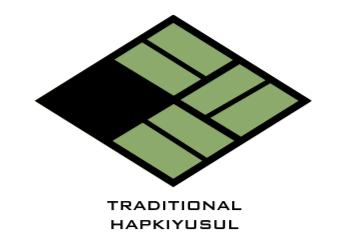Frequently Asked Questions
What is the culture of the dojang?
Hapkiyusul is a practice - it takes time and effort to cultivate the skills and technique in the body. As such, the dojang demands respect, patience, and discipline. It is also a warm and inclusive place with a sense of community. It is not a place for arrogance or “loud talk.” We want each student to truly learn and are always open to dialogue and adjusting the pacing to meet individual needs. Questions are always welcome.
Hapkiyusul is for those (beginners included) who sincerely seek a martial arts practice. It is for those who want to develop and deepen their understanding of the mind-body-spirit connection (hapki) as it pertains to martial arts. It is for those who want to take care of their health and for those who want to learn a practical self-defense system.
Because the training requires practicing with partners, it also requires a high degree of compassion AND a willingness to test one’s own personal limits (physically, mentally, emotionally). Though we strive to utilize the skills without pain and injury, the training is not always painless or easy. It takes perseverance and grit. It is through this training that confidence and more importantly hapki can develop.
What is the belt system? Are there tests?
In Hapkiyusul Class, everyone wears a white belt, regardless of standing. This is because 3rd Doju Kim Yunsang believes there is never an end to learning martial arts. It is a lifelong process.
You will receive a Certification with the passing of each technique set.
It takes at least 3 years to be able to test for the first certification.
HOW DO I START?
Please make an appointment to come into the dojang. There will be a light interview in which you can meet Master Han, learn more about the practice and the dojang, and ask questions.
To register, you will fill out/sign a registration form and liability waivers.
If you have any questions or would like to make an appointment, please feel free to contact us.
Is there an annual contract?
No, we are on a month-to-month system. Fees are due by the first day of each month.
What kind of uniform do I wear? How much is it?
Our uniform is the same as a Judo uniform. It is thicker and heavier than other uniforms (i.e. Taekwondo). This is because it needs to hold up against grappling techniques.
COST
Ranges from $60-$80 depending on size and weave.
Are there adult classes?
Traditional Hapkiyusul is a dojang for adults. We only offer adult classes. This martial art form gets deeper with age and experience. While students inevitably get stronger through the practice, Hapkiyusul does not emphasize physical muscular strength or speed, but rather efficiency and subduing opponents by shifting perceptions of balance.
Is it okay if I have no martial arts experience?
Yes, we welcome everyone.
Are there competitions?
There are no competitions.These are real-life techniques and not suitable for a competition setting.
Is there sparring?
There is no conventional sparring. The bulk of the class is working with a partner to go through the various (generally grappling) techniques.
